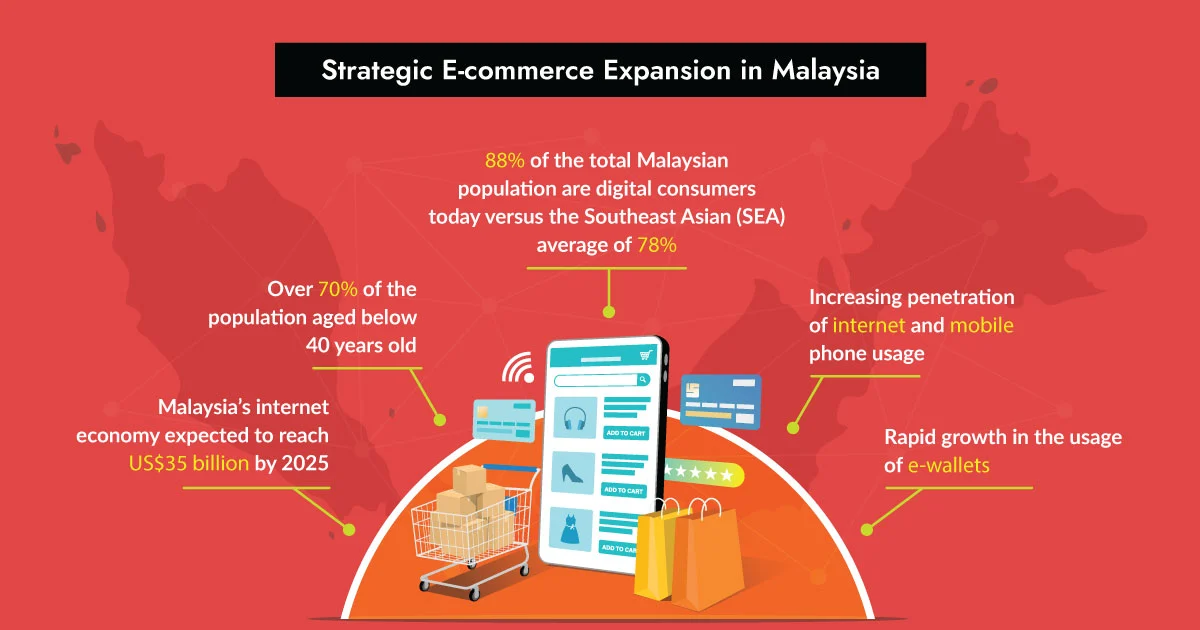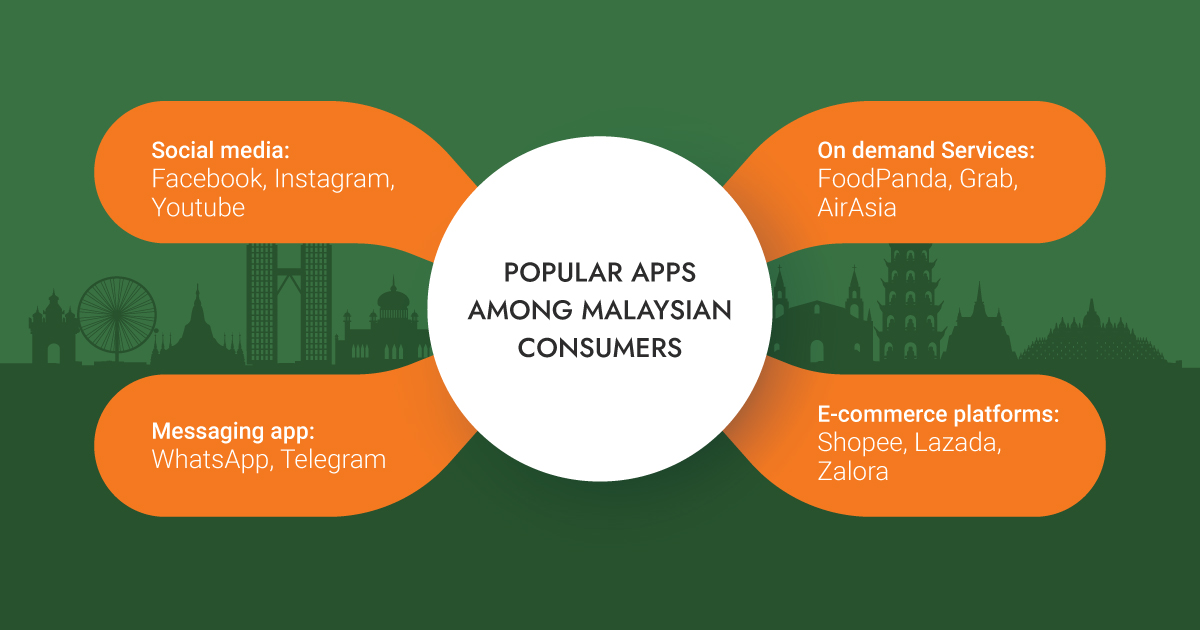The e-commerce industry has seen tremendous growth in recent years, and this trend is only expected to continue. In 2018, e-commerce sales totaled $3.53 trillion dollars worldwide, and this figure is projected to nearly double by 2023. With such rapid expansion, now is the perfect time to incorporate an e-commerce business in Malaysia and tap into this rapidly growing market.
Malaysia is particularly well-positioned to capitalise on the e-commerce boom. The country has a young and tech-savvy population, with over half of the population being under the age of 40. Additionally, Malaysia has a high internet penetration rate, with 87% of the population having access to the internet. This provides a large potential customer base for e-commerce businesses. Moreover, the Malaysian government has been investing heavily in developing the country’s e-commerce infrastructure, including implementing tax incentives for e-commerce businesses and building a nationwide e-commerce ecosystem. These factors make Malaysia an extremely attractive market to incorporate an e-commerce business.
The COVID-19 pandemic has further accelerated the growth of e-commerce in Malaysia. Due to lockdowns and social distancing measures, consumers have increasingly turned to online shopping as a convenient and safe alternative to brick-and-mortar stores. This shift has driven e-commerce sales in Malaysia to new heights, with businesses of all sizes seeing a surge in online orders. The e-commerce boom is expected to continue in the coming months, as Malaysians grow more comfortable with making purchases online.
Table of Contents
Why is Malaysia a great country to incorporate an e-commerce business?
Malaysia has long been seen as a hub for e-commerce in Southeast Asia. This is due to a number of factors, including the country’s well-developed infrastructure, pro-business government policies, and low cost of doing business. Malaysia is also strategically located in Asia, making it easy for businesses to access markets in Southeast Asia, China, and India. In recent years, the Malaysian government has been investing heavily in e-commerce and has introduced a number of initiatives to support businesses. These include e-commerce Masterplan 2.0 and the National e-commerce Strategic Roadmap in line with the Fourth Industrial Revolution. As a result of these efforts, Malaysia is well-positioned to continue its role as a leading e-commerce market in the years to come.
Overview of the Malaysian e-commerce market
Malaysia’s internet economy is growing at a rapid rate and is expected to reach US$35 billion by 2025. On top of that, the country has a young and digitally savvy population, with over 70% of the population being aged 40 and below. 88% of Malaysians are digital consumers today versus the Southeast Asian (SEA) average of 78% putting Malaysia ahead of Indonesia and Singapore when it comes to this.
What are the factors driving the growth of e-commerce in Malaysia?
- Increasing penetration of internet and mobile phone usage
- The growing preference for cashless payments
- Increasing number of e-commerce players in the market
Trends & Opportunities in the e-commerce scene in Malaysia?
As mentioned above, there seems to be rapid growth in the usage of e-wallets such as GrabPay and Boost. People are generally more comfortable using this method of payment. Besides that, leveraging social media marketing as well as influencer marketing seems to help businesses reach their potential customers more effectively. There is also an increasing trend of businesses offering subscription-based models, rather than the traditional one-time purchase model – eventually building consumer loyalty. This could be in the form of either monthly or yearly recurring payments for access to a service or product. Businesses such as Grab and Shopee charge their users using a Pay-Per-Use method.
Challenges of expanding a business into Malaysia
Foreigners intending to incorporate a company in Malaysia tend to have a slight difficulty with the language barrier here. However, this wouldn’t be a problem in the corporate world as the majority of Malaysians can communicate well in English. Another issue that someone from out of the country may face is the cultural differences here. There is a distinct difference in workplace culture here compared to how it’s done in European countries for example. The culture seems to be slightly more hierarchical based on position and age. Nevertheless, this can be managed through proper enforcement by the Human Resources department. Another key challenge that a company may face when incorporating a company in Malaysia is in obtaining government approvals and licenses for certain sectors. This is where a consulting firm such as WeCorporate comes in handy. Our team of experts will be able to advise you on all the forms you will need to go through and make this a smooth process for you.
Incorporating a business in Malaysia
Here are a few tips you can look at before you start a business here:
- Do your market research
- Plan out a well-defined business model taking into account your audiences, market trends, and market demands
- Have a good understanding of Malaysia’s logistics infrastructure for on-time delivery, always
- Invest in a good eWallet and payment gateway solution that is secure and trustworthy.
- Promote your e-commerce website through online marketing channels and drive traffic to it organically.
Related read: How to Set Up a Company in Malaysia
Once you are sure about all these business plans, speak to us for a personalised consultation and we can help you set up a company in Malaysia as well as with your SSM registration.
FAQs about E-Commerce Expansion in Malaysia
- Yes. The good news is, as a foreigner, you are allowed to register a certain types of business entities in Malaysia provided you have a legitimate residential address in the country.
- You only need MYR1.00 to start your e-commerce business in Malaysia.
- Yes, the country has business-friendly laws and regulations. In fact, the government also provides incentives in line with the Fourth Industrial Revolution.

Niresh Kaur is a content development manager who writes for WeCorporate. She mainly writes legal articles, as well as analytical content that serves entrepreneurs with insights on the business scene in the APAC region.
Set up your e-commerce business in Malaysia today
Our team at WeCorporate are more than happy to assist you reach your goals

